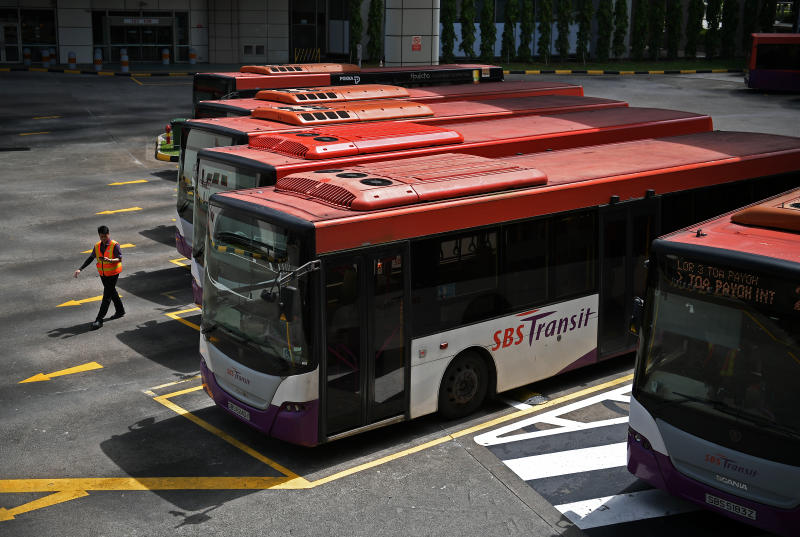Government grants keep SBS Transit in the black in the first half of 2020
Sign up now: Get ST's newsletters delivered to your inbox

SBS Transit operating expenses were 12.5 per cent lower at $571 million.
PHOTO: ST FILE
Follow topic:
SINGAPORE - Transport operator SBS Transit posted a 27.4 per cent drop in first-half net earnings to $32.6 million as fewer people commuted during the pandemic.
The ComfortDelGro subsidiary said that if not for government relief, it would have incurred an operating loss of $29.4 million.
Revenue was down 14.9 per cent to $603.2 million for the six months ended June 30, as circuit breaker measures from April to June brought public transport ridership down by as much as 80 per cent.
Even after circuit breaker was lifted on June 2, ridership remained at around half of what it used to be before the pandemic.
SBS Transit operating expenses were 12.5 per cent lower at $571 million, with fuel and electricity cost seeing the biggest drop at 46.6 per cent to $47.6 million as fewer bus- and train-runs were made during the stay-home period.
Even staff cost, usually on an uptrend, fell 16.8 per cent to $295.9 million because drivers clocked little or no overtime during the period.
The bus and train operator's earnings per share fell from 14.39 cents to 10.45 cents. Its tangible asset per share stood at $1.73, from $1.69 at Dec 31, 2019.
The transport operator said profit in the first half "was largely lifted by government grants of $61.6 million".
It said for the six months, average rail ridership fell by more than 40 per cent for MRT and more than 30 per cent for LRT.
This was partially offset by average fares, which were 14.7 per cent higher for the Downtown Line, 16.6 per cent higher for the North-East Line, and 8.7 per cent higher for the Sengkang-Punggol LRT.
SBS Transit, however, remained in a strong cash position. As at June 30, it had short-term deposits and bank balances of $94.5 million.
After accounting for borrowings of $75 million, it was in a net cash position of $19.5 million.
As at Dec 31, 2019, its net gearing ratio was 8.5 per cent, while its gross gearing ratio was 14.2 per cent as at June 30, versus 14.6 per cent as at Dec 31.
Looking ahead, directors said "the full economic impact of the Covid-19 pandemic is still unfolding".
They expect transit revenue to be lower compared to last year as ridership remains low. Revenue from other commercial activities such as retail is expected to be "challenging" because of fewer people at train stations and bus interchanges.
Repairs and maintenance costs are expected to increase with the ongoing mid-life refurbishment of the North-east line and Sengkang-Punggol LRT.
"The adverse impact of Covid-19... will be partially cushioned by grants from government support schemes," SBS Transit noted, but added that the outlook will worsen if there is a second wave of infections.
In light of uncertainties, SBST is not paying an interim dividend - a rare occurrence. In the same time last year, it paid 7.15 cents per share in dividend.

